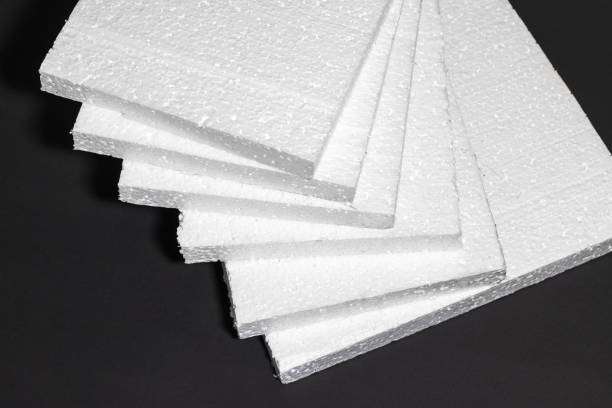
Explore the versatility and sustainability of expanded polystyrene (EPS) sheets in our comprehensive blog. Discover their properties, uses in construction and packaging, environmental benefits, and creative applications. Learn how EPS contributes to energy efficiency and a greener future.
Introduction
In today’s world, where environmental concerns are at the forefront of many discussions, finding sustainable materials for construction, packaging, and insulation has become a top priority. Expanded polystyrene sheets, commonly referred to as EPS sheets, have emerged as a remarkable solution to meet these needs. These lightweight, durable, and energy-efficient sheets offer a wide range of applications in various industries. In this extensive blog, we will explore the versatility and sustainability of expanded polystyrene sheets, focusing on their properties, uses, benefits, and environmental impact.
Understanding Expanded Polystyrene Sheets
Before delving into the applications and sustainability aspects of expanded polystyrene sheets, it’s crucial to understand what they are and how they are manufactured. Expanded polystyrene (EPS) is a lightweight, rigid plastic foam material derived from polystyrene. The manufacturing process involves heating the polystyrene resin, which causes it to expand and form a closed-cell structure with low thermal conductivity. This structure gives EPS its excellent insulating properties, making it suitable for a wide range of applications.
Versatility in Construction
Expanded polystyrene sheets have gained immense popularity in the construction industry for their versatility and superior insulation capabilities. These sheets are commonly used in building walls, roofs, and foundations. The insulation provided by EPS sheets helps maintain a consistent indoor temperature, reducing the need for excessive heating or cooling, and thus, energy consumption. Moreover, EPS sheets are moisture-resistant, preventing the growth of mold and mildew within the walls, ensuring a healthier living environment.
In addition to insulation, EPS sheets are also used for architectural elements such as decorative cornices, columns, and medallions. Their lightweight nature makes them easy to install and provides architects and builders with endless design possibilities.
Packaging and Protection
When it comes to packaging, expanded polystyrene sheets are invaluable. Their shock-absorbing properties make them an ideal choice for protecting fragile items during shipping. The ability of EPS to cushion and absorb impacts reduces the risk of damage to delicate electronics, glassware, and other sensitive products. Moreover, EPS is lightweight, which helps lower shipping costs and reduces the carbon footprint associated with transportation.
Sustainable Solutions
One of the key advantages of expanded polystyrene sheets is their sustainability. Despite the initial perception of polystyrene as a non-environmentally friendly material, EPS has proven to be eco-friendly in several ways:
Recycling: EPS is 100% recyclable. When disposed of correctly, it can be collected and processed into new EPS products or other materials. Recycling EPS reduces waste and conserves valuable resources.
Energy Efficiency: The excellent insulation properties of EPS help reduce energy consumption in buildings, making them more energy-efficient. This leads to lower greenhouse gas emissions and a smaller carbon footprint.
Durability: EPS sheets have a long lifespan, which means they don’t need frequent replacement. This durability minimizes the environmental impact associated with manufacturing and disposing of building materials.
Craft and Artistic Applications
The versatility of expanded polystyrene sheets extends beyond industrial and construction applications. Many artists and craftsmen use EPS as a sculpting material. Its lightweight and easy-to-carve nature make it an excellent choice for creating intricate and large-scale sculptures. The ability to coat EPS with various finishes, such as paint or plaster, allows artists to achieve their desired aesthetic effects.
Horticultural Use
Gardening enthusiasts and professionals also find expanded polystyrene sheets useful in horticultural applications. EPS can be used to create custom planters, garden decorations, and even hydroponic systems. The lightweight nature of EPS makes it easy to move and rearrange garden elements, providing flexibility in garden design.
Conclusion
In conclusion, expanded polystyrene sheets, despite being a thermoplastic material, have proven to be a versatile, sustainable, and indispensable resource in various industries. Their exceptional insulating properties, lightweight nature, and adaptability to different applications make them a preferred choice for construction, packaging, and artistic endeavors. Furthermore, the sustainability of EPS cannot be overlooked, as it can be recycled, contributes to energy efficiency, and minimizes environmental impact.
As industries continue to seek environmentally responsible solutions, expanded polystyrene sheets remain at the forefront of innovative materials. Their ability to address the challenges of insulation, protection, and artistic expression while minimizing their ecological footprint makes them a valuable asset in today’s world. Whether you are an architect, a manufacturer, an artist, or a gardener, consider incorporating EPS sheets into your projects to benefit from their exceptional properties and contribute to a more sustainable future.
